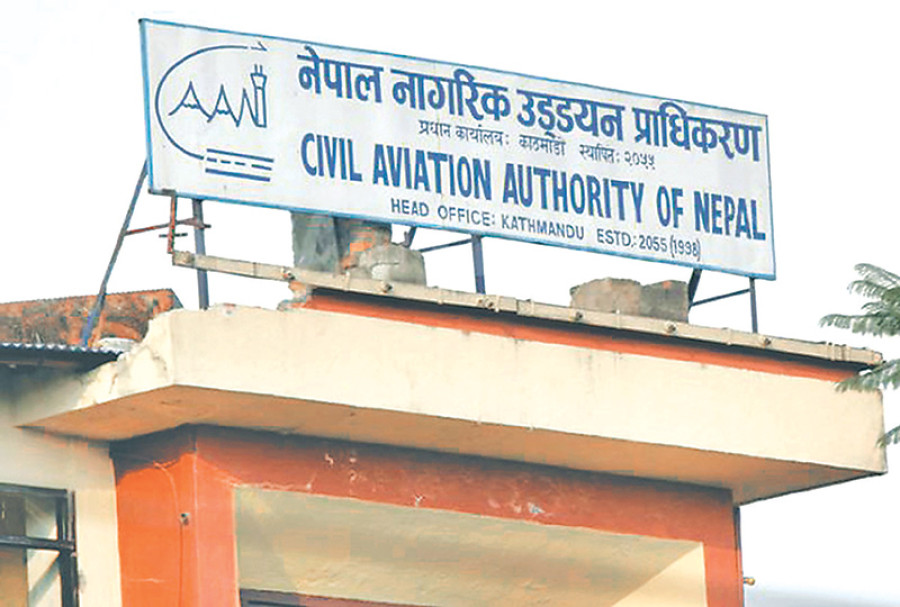Money
New Civil Aviation Bill aims to break up Caan
The Tourism Ministry has finalised a draft Civil Aviation Bill which proposes splitting the Civil Aviation Authority of Nepal (Caan) into two entities, regulator and service provider.
The Tourism Ministry has finalised a draft Civil Aviation Bill which proposes splitting the Civil Aviation Authority of Nepal (Caan) into two entities, regulator and service provider.
The draft will be sent to the Law Ministry next week before being submitted to the Cabinet, said Tourism Joint Secretary Buddhi Sagar Lamichhane. “The Law Ministry will examine the legal appropriateness of the content before it is tabled at the Cabinet.”
Breaking up Caan, which is among the components of the $4.2 million Air Transport Enhancement Project funded by the Asian Development Bank (ADB), is aimed at facilitating stringent enforcement of safety measures.
Caan has been functioning as both regulator and service provider out of the same office, and there is no clear demarcation between its duties and organisational structure.
According to Lamichhane, they have discussed the first draft with the concerned stakeholders. Their inputs have been included in the revised draft, he said.
As per the draft bill, Caan will continue to act as regulator while a separate Airport and Air Navigation Services will be set up to operate as service provider. The service provider will be a public limited company and be led by a CEO. Its key functions will be airport management, terminal management, ground handling, airport security, rescue and fire fighting services, airport infrastructure development, airport fee and tax collection and air traffic control services.
Likewise, the regulator will be responsible for issuing licences and regulating aviation professionals and pilots, engineers, air traffic controllers, airlines and aerodromes.
Lamichhane said that there would be a few changes in the composition of Caan’s board. Caan will have a six-member board of directors. The tourism and civil aviation minister will be board chairman instead of the secretary as proposed by the first draft.
Other members are joint secretaries from the Tourism and Finance ministries. Two experts having 10 years of experience in aviation, air safety and air navigation will also sit on the board. Caan’s director general will be the member-secretary.
There will be no place for private operators on the board anymore. “Private operators will not be appointed to the board as they cannot be asked to approve rules which are meant to regulate them,” said Lamichhane. “We have ended this trend as it was one of the contradictory issues.”
Once the Law Ministry okays the legal appropriateness of the content, the draft will be tabled at the Cabinet. The draft will then be sent to the Finance and Home ministries and for public hearings including parliamentary committees.
After all the steps have been completed and everybody is satisfied with the draft, the ministry in charge will put it into a proper statutory form and send it to the Cabinet again. After the Cabinet okays it, the final draft bill will be tabled in Parliament.
Once the bill becomes law, it will replace two existing acts: Civil Aviation Act 1959 and Nepal Civil Aviation Authority Act 1996. The government has been working on the new law for the last eight years. The International Civil Aviation Organisation’s (Icao) Universal Safety Oversight Audit Programme has also recommended that Caan be split to make the aviation sector more efficient.




 9.83°C Kathmandu
9.83°C Kathmandu














